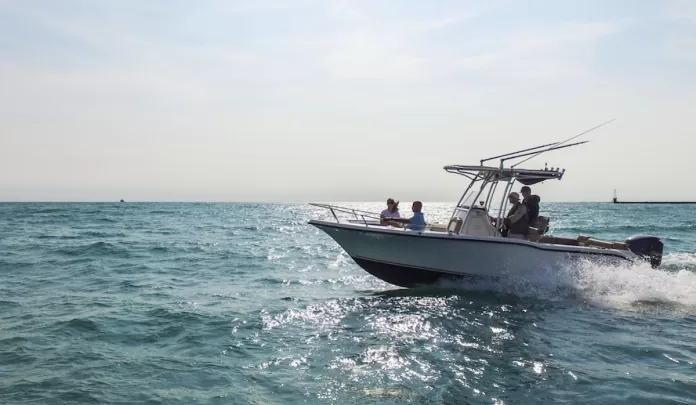The American boating industry has welcomed the withdrawal of the proposed expansion of the 2008 North Atlantic Right Whale Vessel Strike Reduction Rule.
The National Marine Manufacturers Association along with other organisations had campaigned for technology to be used to help prevent whale strikes rather than a speed restriction.
The proposed rule could have restricted small boats to travelling at 10 knots along much of America’s Eastern Seaboard.
“This is a huge step forward for American boat manufacturers, coastal economies, and outdoor enthusiasts across the U.S.,” said Frank Hugelmeyer, NMMA president and CEO.
“The way this rule was drafted gave rulemaking a bad name and created an entirely preventable dynamic. Coastal communities are part of the fabric of this nation, and their livelihoods should never be put at risk by the federal government.”
The proposed rule completely ignored the advanced marine technologies available now.
Frank Hugelmeyer
The NMMA pointed out that the proposed rule relied on incorrect assumptions and questionable data, and failed to distinguish between large, ocean-crossing vessels and small recreational boats.
“Most concerning, the proposed rule completely ignored the advanced marine technologies available now that can best protect the North Atlantic right whale and prevent vessel strikes,” added Frank.
“The rule’s many blind spots would have created dire consequences for boater safety and accessibility, the economic vitality of coastal communities and marine manufacturers, and the livelihoods of countless supporting small businesses, all while undermining years of progress in marine conservation.”
We hope that the withdrawal of this rule will provide the industry with the opportunity to work with the federal government.
Matt Gruhn
The NMMA and the recreational boating industry believes innovations such as infrared imagery detection, 3D sonar mapping, and innovative marine radar algorithms can offer targeted, effective protection for endangered marine life.
Matt Gruhn, president of the Marine Retailers Association of the Americas (MRAA), added: “We hope that the withdrawal of this rule will provide the industry with the opportunity to work with the federal government to develop and invest in technological solutions to ensure that recreational boaters and anglers can co-exist with marine mammals while on America’s oceans, protecting both access to our marine resources and endangered aquatic species.”
It was feared that implementation of the rule would have jeopardized the more than 810,000 American jobs and $230 billion in economic contributions.
The proposed rule was also projected to cancel or alter 122,000 recreational fishing trips annually.




